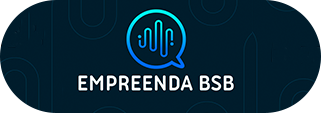In episode #7 of the CTRL ENTER podcast, IDP professor and presenter, Leonardo Monastério, welcomed Álvaro Justen, also known as Turicas, activist and collaborator in several free software projects for over 10 years, phytonist, Arduino disseminator, enthusiast of agile methodologies and one of the founders of brasil.io , a website that hosts several released databases.
Turicas’ trajectory and motivation
Álvaro says that he started programming when he was 14 years old and has always been interested in learning about new languages. In 2005, he started learning about Python when he identified with the language and, at that time, he was already involved with free software.
The idea for brasil.i was born from Álvaro's personal need when he needed to access some data and saw that it was not easy to find it in valid formats. Thus, Turicas began to get involved with the open data community and started brasil.io with the aim of making public data more accessible and collaborative for everyone.
“Making data of public interest less accessible is, in a way, elitizing democracy”, says Álvaro.
The relationship with government bodies
“In general, the relationship is calm, with the exception of some who need the law to access information and resources, such as the federal revenue service” , says Álvaro.
braisl.io 44 million Brazilian CNPJs on its platform, as well as a list of partners and their business activities. This database as it is presented today on the website, a few years ago, was not available by the Federal Revenue Service, which provided a very simple database without much information. Given this, Álvaro and some friends requested access to information, which was initially denied. After some appeals, the request arrived at the General Comptroller of the Union and, finally, they received access to the data so that they could provide it more easily to anyone who needed it.
Only after the incident, there was public pressure and the Federal Revenue began to provide information on its own website.
Is the future Python?
With the proportion that Phyton has today in the world, Álvaro believes that it can be difficult to migrate a system from one language to another, as it can generate a lot of costs for companies that adopt the current language. Therefore, he believes that Phyton should continue to be the protagonist for a long time, but that other languages may emerge according to needs. https://mostbet-games.net/pl/
The activist still believes that the main issue of a language is not just the technique, but also the collaborative community, that is, the exchange of knowledge and involvement between people, which is why Phyton is also very strong. Today, on the internet, you can find answers and solutions very quickly for the language.
The basis of COVID-19 and its interpretations
When faced with a new database, there are some pitfalls for those who are going to interpret it, such as reading problems, not knowing the “dirt” of the database and not knowing the data processes, which can cause some distortions in its interpretation.
In the case of COVID-19, many people ended up misinterpreting the data, as they did not know the lags in the bases.
brasil.io website that has always been focused on creating programs that download and convert data and make data available on its platform and is looking to improve how to help people interpret data.
Within the website's manifesto, they report that dealing with access to data is not just dealing with its format, but also understanding the data and the area in which the data was generated.
With COVID-19, the need to educate people to interpret data correctly has become much more explicit, as many people ask specific questions about the interpretation of the data presented, according to Álvaro. To meet this need, documentation was created on the data presented to help people understand the business rules and, thus, avoid the possibility of spreading false news and misunderstanding the topic.
To listen to the podcast in full, click here or access your favorite podcast platform.








